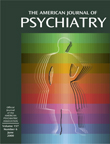Transmission of Response to Trauma? Second-Generation Holocaust Survivors’ Reaction to Cancer
Abstract
OBJECTIVE: Opinions differ about the effects of the Holocaust on the adult offspring of survivors. The authors studied cancer patients who were second-generation Holocaust survivors in an attempt to determine whether they react to their illness with the high distress found to be a characteristic of Holocaust survivors.METHOD: In a study population of women with breast cancer, 106 second-generation Holocaust survivors were compared to 102 women whose parents were not in the Holocaust. Background information was obtained by interviews. In addition, all patients completed three self-reports: the Mental Attitude to Cancer Scale, the Brief Symptom Inventory, and the Impact of Event Scale.RESULTS: The two groups had identical mean scores on the Mental Attitude to Cancer Scale. The offspring of Holocaust survivors had scores on the Brief Symptom Inventory and the Impact of Event Scale that were substantially and significantly higher and in the range of psychopathology. Within the group, married women and women whose mothers were still alive were even more distressed. Other independent variables shed little light on why the second-generation Holocaust survivors suffered from extreme distress.CONCLUSIONS: Second-generation Holocaust survivors are particularly vulnerable to psychological distress and, when faced with a trauma such as breast cancer, react with extreme psychological distress.



